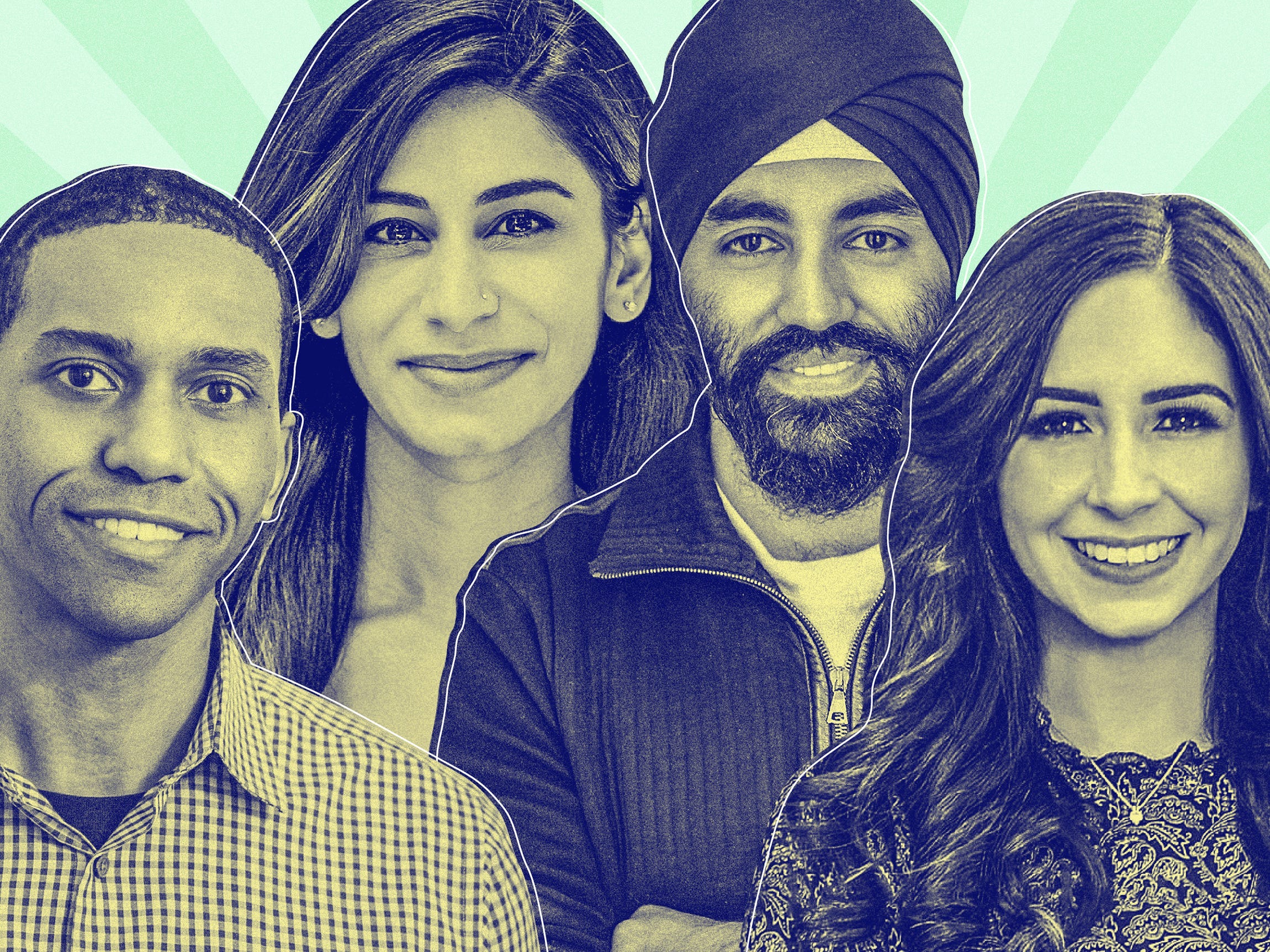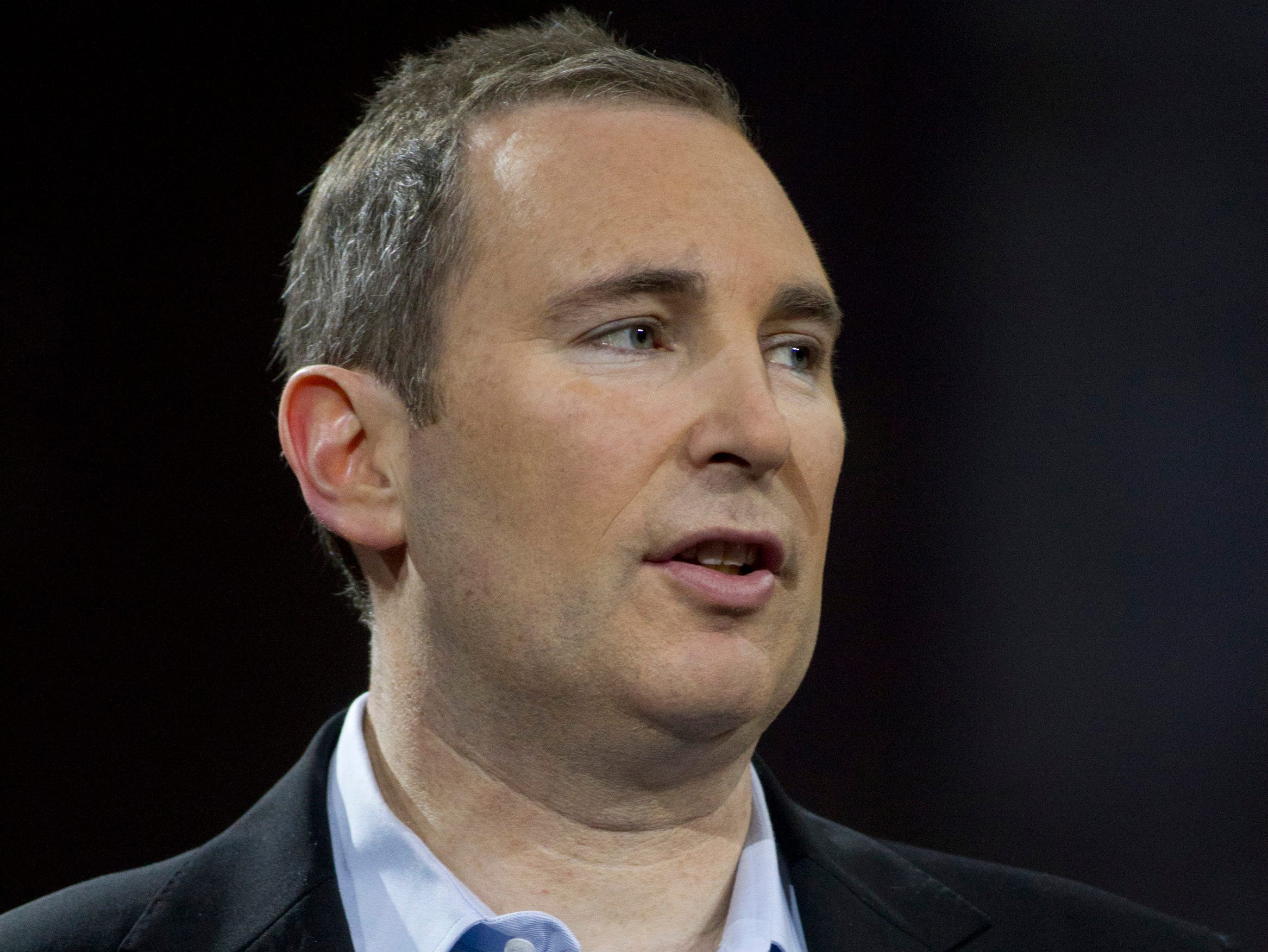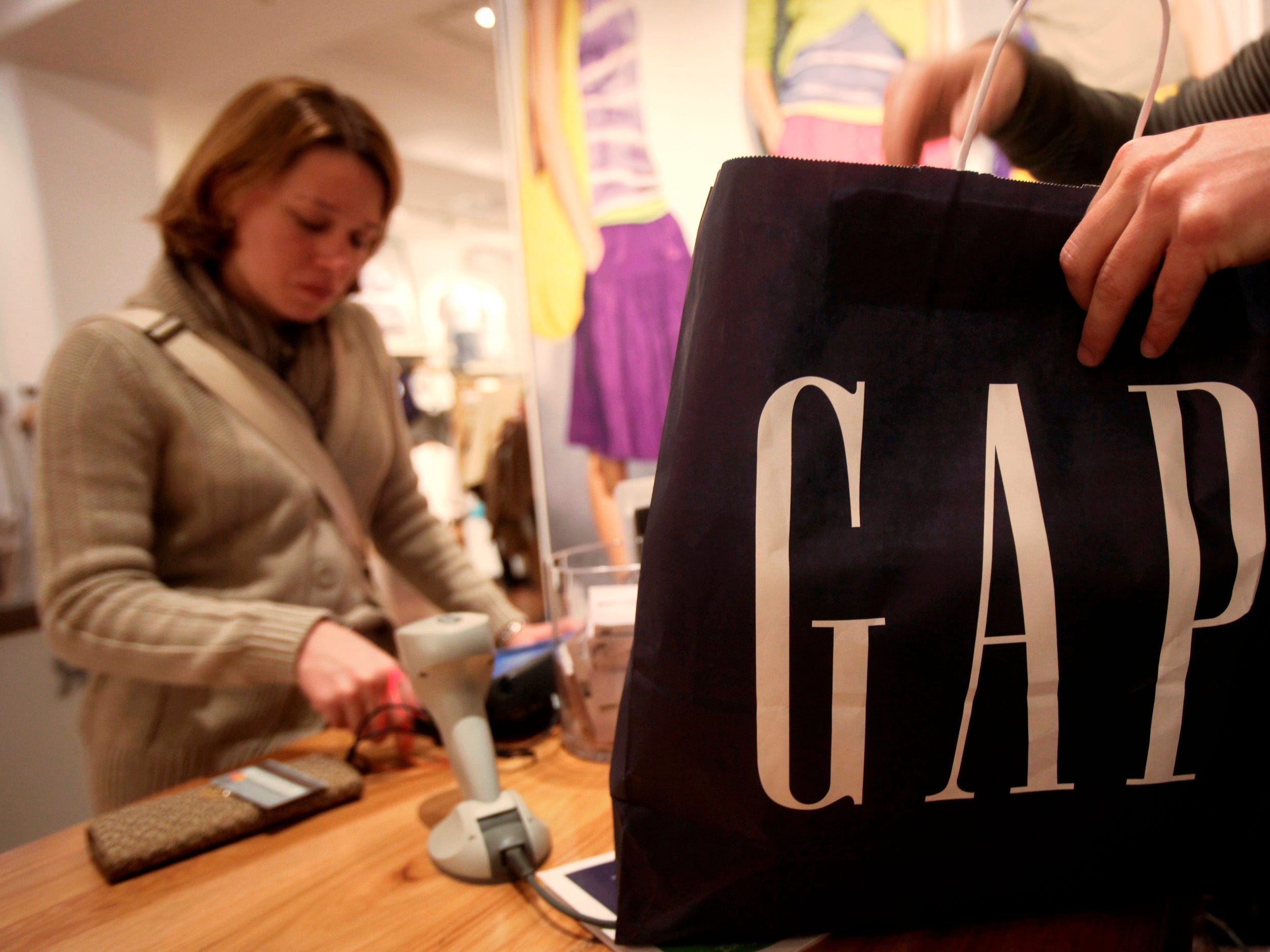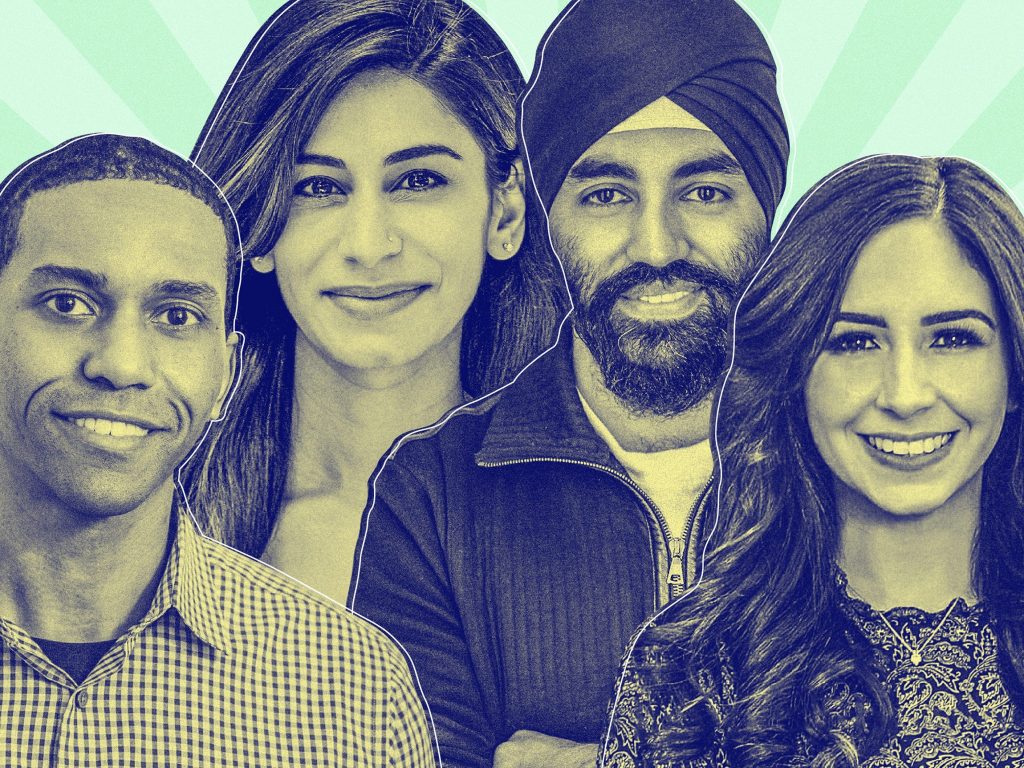Hello!
Welcome to this weekly roundup of stories from Matt Turner, Insider's co-Editor in Chief of business. Subscribe here to get this newsletter in your inbox every Sunday. Plus, download Insider's app for news on the go – click here for iOS and here for Android.
What we're going over today:
- A new generation of leaders is transforming the healthcare industry.
- Cloud software's time in the spotlight may be waning.
- Gap's sales are up – and the retailer is poised to cash in on its comeback.
- You're not alone – there's a reason why working from home makes a lot of people paranoid.

Thrive; Carrot Fertility; Oura; Deena Shakir; Samantha Lee/Insider
What's trending this morning:
- Over 300 Amazon staffers joined a Slack channel to criticize the company. Here's what workers are saying about its opaque performance-review system.
- There's over 60 key players leading Travis Kalanick's top secret startup CloudKitchens - but it's so hush-hush they can't even add it to their resumes.
- Salesforce and Zoom were vying for the same mega-acquisition of Five9. This means we may know what the $242 billion cloud giant could buy next.
- Google is shutting down its health division. Find out what Insider learned in a leaked memo.
- Real-estate investors can tap into these new rankings of the best areas to buy vacation rental properties right now.
The new leaders transforming the healthcare industry
There's an elite group of doctors, scientists, executives, and founders who are rethinking and improving how we keep people healthy. Out of hundreds of nominations, these are Insider's 30 under 40 set to revamp healthcare - and here's a look at one of the featured leaders:
Dr. Nworah Ayogu, 33, is defining the future of Amazon Pharmacy
By the time Nworah Ayogu got his medical degree from Harvard University in 2015, he'd researched vaccines for brain tumors, helped stand up his hometown's first office of minority health, and codeveloped a service for infant care via text messages in Cape Town, South Africa.
With an MBA also in hand, he went into residency at Columbia University already well acquainted with the limitations of medical care. Then, in 2017, he joined Cityblock Health, a tech-oriented health startup that cares for vulnerable populations.
See the full list here:
Also read:
- Apple is scaling back a key health project that grew out of its care clinics, and some workers could lose their jobs
- A top Anthem exec explains why the $92 billion health-insurance giant is betting on a different primary-care strategy than rivals UnitedHealth and Humana
The honeymoon and hype may be over for cloud software

Cloud customers are getting more cautious when approaching services like Amazon Web Services and Google Cloud. A growing number of VCs and Wall Street firms have cooled on restructuring their information technology and willingness to front the costs:
AWS, the market leader, is on track to bring in $59 billion in revenue this year after posting growth of 37% over the previous quarter, and Google Cloud had $4.6 billion in revenue last quarter, up 54% year over year. The numbers are impressive given that the clouds have at times struggled to show growth as their businesses mature.
In other words, while cloud is still a booming sector and will likely remain that way for some time to come, its hype may be wearing off as customers reassess the costs and benefits of restructuring their information technology.
And that dynamic could create an opening for old-guard companies like Cisco, Oracle, and VMware, whose data-center-focused products - not long ago written off as irrelevant because of cloud's dominance - seem more vital than ever.
Read the full story here:
Also read:
- A former Amazon manager explains how AWS first realized surprise cloud bills were a problem for its customers
- Google's payments team is seeing an exodus of executives and employees. Some say they're frustrated with the slow pace of progress.
The Gap comeback begins now

Jeff Chiu/AP
The once-iconic American retailer Gap has been in decline for decades. But its revenue rose dramatically year-over-year during the pandemic, which its CEO attributed partially to new marketing campaigns. Social media buzz and influencer hype may also helped, as well as activist marketing campaigns and revamped products:
The onetime American mall mainstay has been shutting physical stores for years, and plans to close more than 350 Gap and Banana Republic stores in North America by 2023. It's instead making a bigger bet on e-commerce. Gap is working to improve its mobile experience and email personalization to drive sales. And it just launched a loyalty program to get people to spend more across Gap Inc. brands.
Gap's reset coincided with the pandemic, when people were seeking casual attire and longstanding brands, said Jason Goldberg chief commerce strategy officer at Publicis North America. E-commerce sales have helped offset in-store declines, growing 82% in the first quarter. It's seeking more collaborations like its deal with Kanye West's Yeezy, which Wells Fargo estimated could drive up to $990 million in incremental sales in fiscal 2022.
Get the details on Gap's comeback:
Also read:
- In leaked internal messages, Stitch Fix stylists say corporate is 'gaslighting' them and ignoring pleas for help on new policies and schedules
- Brands like David's Bridal and Zola are spending big on advertising as the $51 billion wedding industry surges
Work-from-home paranoia is a real thing

Research suggests that the loneliness of working from home can seep into feelings of vulnerability and paranoia, like the idea that coworkers and bosses could be chatting behind your back on private Slack channels. Navigating paranoia starts with getting out of your own head:
Paranoia at work isn't necessarily a bad thing. Stanford's Roderick Kramer showed it can be a reasonable and appropriate response to a threat. He coined the term "prudent paranoia" to refer to a certain kind of attentiveness whereby being suspicious of others' underlying motivations serves as a form of emotional intelligence and covert information gathering.
Being "prudently paranoid" might give you an advantage in grasping social dynamics and predicting future outcomes. Problems occur when the paranoia becomes pathological - when you start reading into things that aren't there.
Vanessa Bohns, a social psychologist and professor of organizational behavior at Cornell University, recommended getting off Slack. It's rife with opportunities for miscommunication, she said.
Dig into WFH paranoia:
- Working from home has made us all paranoid Also Read:
- The 24 best side hustles that could earn you 6 figures or more, and how to get them off the ground quickly from experts who have done it
- 5 ways to read a job description for clues into a future employer's culture
Finally, here are some headlines you might have missed last week.
- Matt
- Silicon Valley is falling apart - force feeding us lazy and derivative tech
- I'm a 20-year-old college student selling $34K on Poshmark. Here's the daily routine I follow to juggle resale and school.
- Adam Gitzes earns around $190 a day from remote bitcoin mining as a side hustle. He shares 2 reasons why it's 'a great time' to start - and his tips for finding success with it
- Hedge fund Tiger Global is blowing up the unwritten rules of startup investing right now with its speed, tons of cash, and hands-off approach
- 'This is turning into a circus': Amazon employees blast the company's latest return-to-office plans internally, calling for permanent remote work
- TV companies are at a boiling point with Nielsen over how it counts viewers and some are ready to move on. Here are 6 companies that could replace it.
- Maximize passive income from real estate investments with 3 easy strategies
